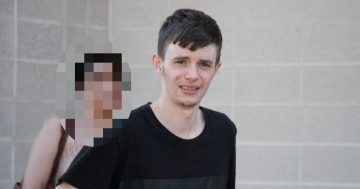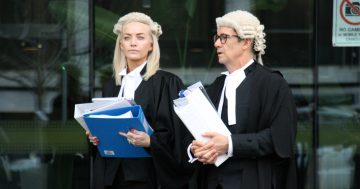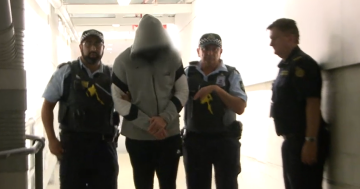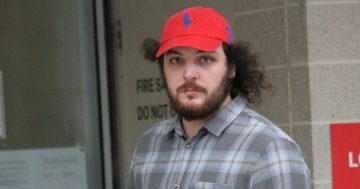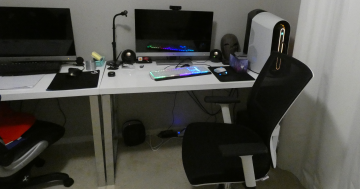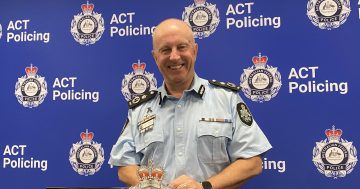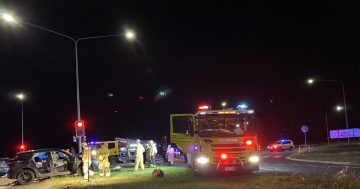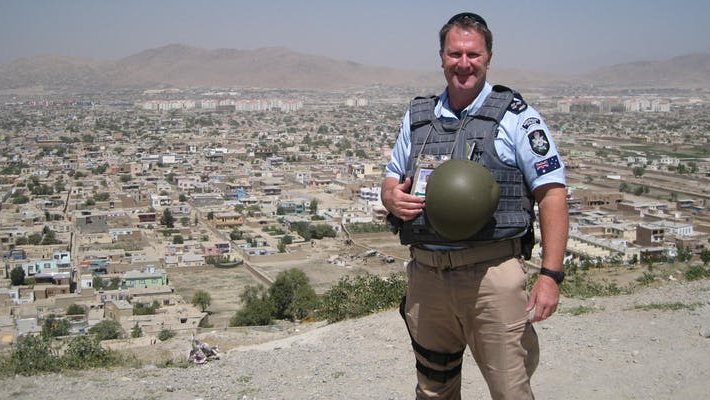
Grant Edwards, pictured here in Afghanistan, was a highly regarded AFP commander. Photo: Supplied.
Grant Edwards is genuinely one of the strongest men you will ever meet.
He’s had a long, illustrious career as an AFP commander (partly here in Canberra), advising on high-level security in some of the world’s most dangerous places.
He’s been an elite athlete and a strongman whose speciality was hauling everything from locomotives to aeroplanes. He’s even a Guinness World Record holder.
But in his autobiography The Strong Man, he writes that the biggest challenge was inside his head. A few years ago, he cracked.
It was Post Traumatic Stress Disorder: dislocation, self-imposed isolation from family and friends, misunderstandings, incoherence and a never-ending feeling of plunging, fast, into the darkness.
“I thought PTSD was traumatic events and flashbacks,” he says. “But it includes the physical manifestations, the aches and pains. Sometimes you’ll react slowly to a trigger, sometimes it’s almost instantaneous and you are free falling. That’s where the negative thinking, the thoughts about suicide come in.”
It began with parents who loved him and his sister fiercely but battled their own demons. His father left the family for another man, his mother literally drank herself to death. He was again devastated when his grandfather committed suicide.
The losses sowed deep uncertainty. “Even now I struggle to form lasting relationships and trust people because it’s so hard to break that pattern. Inside my head, I’m saying ‘I’ll just deal with this alone, because I expect you will move on.'”
Attracted to leadership, he gravitated towards the police force, all the time pushing himself harder and further to prove he was in control, could achieve, could keep himself and others safe.
He came close to Olympic selection and then got into strongman competitions, pushing himself to lift boulders and pull trucks.
Edwards says that although he didn’t realise it at the time, the endorphins from competition were helping him to cope and push down his demons.
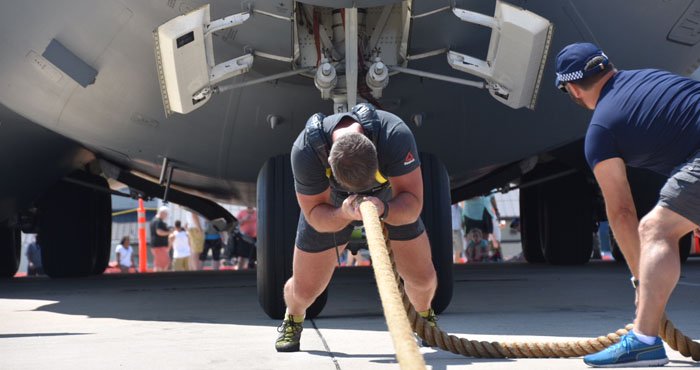
Edwards during his strongman days. Photo: AFP.
“I could be totally absorbed in what I was doing and the kick at the end makes you feel good about yourself.”
As a trusted senior officer he spent years tracking down child abuse perpetrators when there was little recognition that the work could have a traumatic effect on police. But his breaking point came after a year spent training police in Afghanistan when a sudden decision was made to remove his personnel.
“I took my responsibility there very seriously, that we all got home in one piece. But we ended up leaving like rats in the night.
“I use the mental health analogy of placing a pebble in your backpack every day. There comes a point where it’s one pebble too many and the strain is unbearable. It’s not always the major trauma that pushes you over the edge, it’s the cumulative effect over time.”
Edwards says when a GP suggested PTSD might be the problem he was profoundly shocked, believing that his police career would be over. But AFP Commissioner Andrew Colvin saw matters differently, encouraging him to believe that he could continue working with support.
“I don’t believe you’re ever cured,” he says today. “You learn to live with it and to manage it – it’s the new normal for me.
“I’ve had episodes as recently as a few months ago, but the difference now is that I’ve learned how to get myself out of it.
“All the TV shows show police seeing horror and being back at work the next day as if nothing happens. Truthfully, if you’re going to join the police, expect you will be traumatised during your career. You throw the key to the devil and he unlocks the doors and lets all the demons out.”
As he retires from the AFP, Edwards hopes to work on shifting the “very complex” police culture around mental illness with clinical and organisational psychologists. He knows that while he had a supportive response from the top of the force, many officers on the beat don’t feel so confident about speaking out.
“We’ve got to stop thinking we are protected by armour and that we can just take it off at the end of the day. If it’s not you who are affected, it will be someone close to you.
“That realisation needs to be embedded and intrinsic in policing, otherwise none of us will be able to do our jobs.”
Grant Edwards speaks at the ANU on Monday night, and at the Canberra Writers Festival on August 24.
The Strong Man is available at all leading bookstores.












